Madagascar
Famed for its towering rain forests, leaping lemurs, chameleons, poisonous frogs, and plants Madagascar is a biodiversity hotspot and major pull for tourists.
More than 80 percent of the mammals in the world’s fourth largest island are found nowhere else.
But exotic creatures – such as one of the world’s smallest amphibians, the Stumpffia pygmy frog – remain under threat as rampant logging continues to destroy both plant and animal life in the country’s forests.
In Vohibola forest in the country’s east, Nabe a tourist guide in Vohibola says slash-and-burn farming and decades of logging has seen the forest here slowly destroyed.
Nabe is worried that the trend is already affecting communities who largely depend on tourism to earn a living.
“Last year in 2017, loggers set fire to this reserve, and roughly more than 20 percent of the forest got burned, so we found that several animal species were burned to ashes in it,” he said.
Eco-tourism is the backbone of the country’s $390 million-a-year tourism industry.
Researchers also warn that the country’s famous lemurs are increasingly facing the risk of being wiped out.
Communities are being encouraged to play a more active role in protecting the country’s biodiversity by looking out for illegal activities in forests.
“It’s an entire tree here, the trunk is there, the top is here, and they only took one meter fifty (1.5m), two meters on the tree only, that’s all, the rest is a loss,” said Stephan, a tourist guide.
“There were 30 loggers here, and we have seized the illegally logged wood. This is evidence of deforestation,” added Jean Paul, a guide and member of a community conservation group.
The community here is also working on various conservation projects including gathering seeds for a tree nursery and eventually replanting trees to grow the forest cover.
To try to protect the country’s woodlands, the government has imposed logging bans in the past but despite various efforts, authorities are still struggling to curb the illegal trade of wood.
At least 90 percent of the island’s natural ecology has reportedly been destroyed so far.
Conservationists say there is lack of proper regulation in forestry management, aimed to help save forests.
“Last year it was 510,000 hectares – really a first in the world. Of course Brazil has more than four million hectares that disappeared, but for Madagascar it was four percent of Madagascar’s natural forests that disappeared in one year. This really shows a lack of willing, but also corruption, because the curve of corruption will align with the deforestation curve in Madagascar,” said Njato Razakamanarina, chairman of the Alliance Voahary Gasy Environmental group.
Isolated from other land masses for more than 160 million years, scientists attribute Madagascar’s unique flora and fauna to its long seclusion from neighboring continents.
Reuters



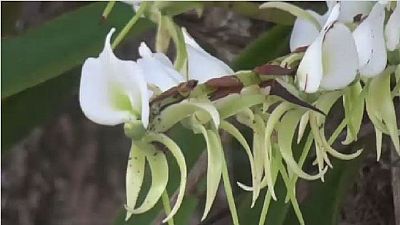

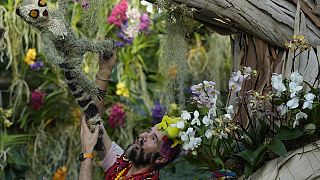
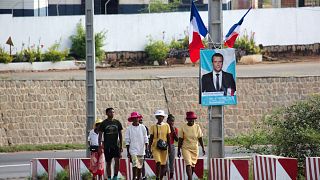
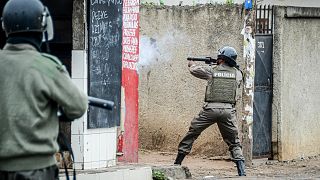
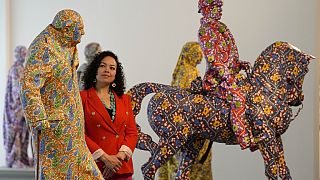



02:38
Natural harmony of Uganda's 'Ghost Island' under threat from international tourism
02:05
In Zimbabwe, metal scrap collecting is reducing environmental pollution
01:02
Madgascar's President in Paris to discuss disputed Indian Ocean islets
01:30
Macron sparks global push to protect oceans
01:06
Experts warn of an increase in Glacier-related risks from climate change
01:50
Sierra Leone: popular chimpanzee sanctuary under threat from encroachment